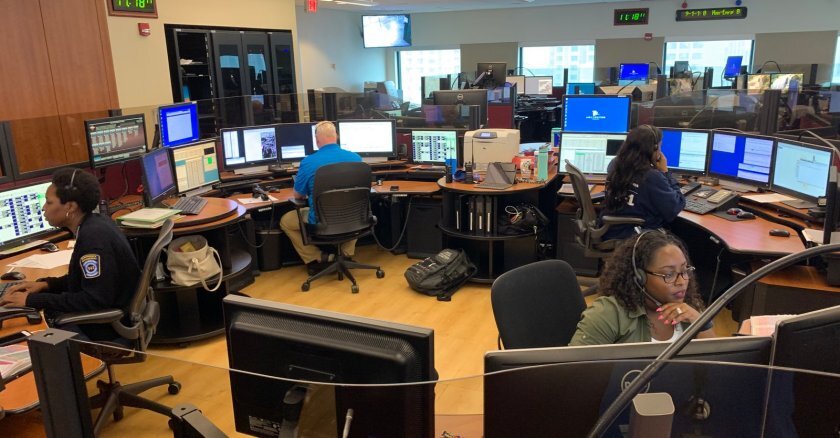
(Arlington County)
Too often, those who work in emergency communications centers are not considered when critical resources are allocated. Outdated technology, inconsistent standards and regulations across jurisdictions, and lack of formal recognition as first responders have created an unsupported and broken system. It’s time for elected leaders at every level of government, along with private-sector partners, to transform the system.
Despite the current fragmented system, thousands of 911 professionals across the country dedicate themselves to being first first responders. When answering a call, we obtain information from a variety of sources, determine and initiate the most appropriate response, and communicate real-time information to on-scene responders while simultaneously providing instructions and support to callers. We are a critical component of the nation’s emergency response system.
Yet years of failing to invest in the 911 professional workforce and infrastructure is taking a toll. Nationwide, emergency communications center staffing levels are down, hold times are up and wait times for emergency dispatch and field response have increased. Stagnant wages and benefits, coupled with increased demand throughout the pandemic, are driving qualified professionals into other sectors as private-sector employers increasingly offer more competitive pay along with better working conditions and benefits.
This all comes as policymakers across the country diversify the range of professionals who are dispatched to 911 calls. This is important progress, given that only 25 percent of 911 calls pertain to a crime in progress, but critical aspects of emergency dispatch remain overlooked. Fortunately, some are beginning to take notice of the need to support 911 professionals and organize around innovative solutions that would reshape emergency response for the better.
President Biden’s Build Back Better legislation that has stalled on Capitol Hill would direct hundreds of millions of dollars to assist municipalities in their efforts to update and modernize 911 infrastructure to match available 21st-century technology. Regardless of the fate of the full BBB legislation, there is no reason that provisions to earmark funds for upgrading the nation’s 911 emergency communications centers cannot be approved by Congress and appropriated to states. This is a cause that must rally bipartisan support this year.
Additional federal legislation like the 911 SAVES Act authored by Reps. Norma Torres, D-Calif., and Brian Fitzpatrick, R-Pa., would meaningfully elevate the 911 telecommunicator profession by putting it on the same level as other protective-service occupations such as law enforcement officers. This simple reclassification would bolster 911 employee morale and retention. Similar proposals to reclassify 911 professionals as first responders have been implemented in many states and should be replicated and built upon in others. Reclassification is one step toward achieving equity in pay and benefits to make the field more attractive. State and local leaders should also consider allowing COVID-19 relief funds from the American Rescue Plan Act to be used to improve emergency response capabilities at the community level.
Leaders within the field of emergency response continue to bring innovative ideas forward to transform the nation’s 911 system in ways that improve public health, community safety and justice. The National Emergency Number Association (NENA) and the Association of Public-Safety Communications Officials (APCO) International regularly share best practices that should be built upon.
This summer, a national community of emergency response experts working with the University of Chicago’s Transform911 initiative will issue a blueprint with further recommendations. Many of the best ideas require further investments in available resources to improve job quality for 911 professionals.
The 911 system is a complex network that is in dire need of transformation. Investing in the people on the receiving end of an emergency call is long overdue and deserves our collective attention.
Tyrell Morris is executive director of the Orleans Parish Communications District and a Certified Public Safety Executive; he co-chairs NENA’s Diversity & Inclusion Special Committee as well as Transform911’s Emergency Communications Center Operations Workgroup. Lora Ueland is executive director of the Valley Communications Center 911 in Kent, Wash., a Certified Public Safety Executive and most recent past president of the Washington State APCO/NENA chapter; she co-chairs Transform911’s Professional Career and Supports Workgroup.
Governing’s opinion columns reflect the views of their authors and not necessarily those of Governing’s editors or management.
Related Content











